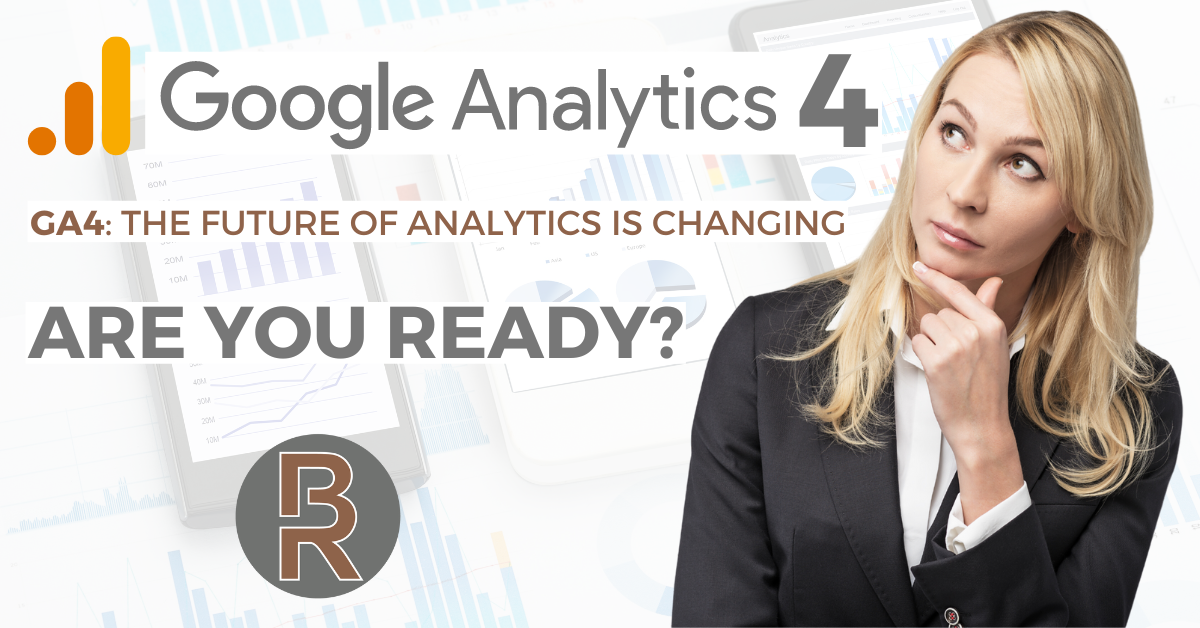
In mid-October, Google announced the release of Google Analytics 4 (GA4), a massive update to it’s Analytics software that helps businesses make data-driven marketing decisions based on user interactions and performance goals tracked on their websites and apps. Analytics (as it’s known) collects valuable consumer data such as behaviors, page visits, demographics, web traffic origins, and more by not only integrating with websites, but also through integration with Google marketing platforms such as Google Ads and YouTube as well as just about every other 3rd party marketing software and tools widely used by advertisers. Since its release, GA4 has created quite the buzz in the digital advertising industry as marketers learn the differences in functionality, evaluate how the changes will affect future data analysis, and work to integrate GA4 with their websites as well as other digital marketing platforms. Today, we will share some of the insights gained through our personal experience with GA4 since its recent release.
Analytics and Session-based Tracking
Google has always strived to provide the best website analytics that help improve marketing decisions in order to get better ROI. The older version of Analytics is designed around Session-based tracking while GA4 is designed for Event-based tracking. In the original version, data analysts we re able to see user behavior based on a session. A session is a set amount of time that a user has interacting with a website. We can understand user behaviors such as page views, average session times, and pages per visits, just to name a few. Events such as various actions users take while visiting a website can be tracked but previously had to be custom coded in order to appear in Analytics. Goals can also be created to help track valuable user behavior such as submitting a contact form or making a phone call directly from the website using the click-to-call functionality.
GA4 and Event-based Tracking
GA4 uses Event-based tracking, essentially automating the process for tracking important, value-based actions users take on websites. GA4 will also be able to provide fast information on common questions marketers may want to know the answer to such as, “How many phone calls were there in March?” or “What product resulted in the most revenue in June?”. Event-based analytics is also going to be important moving forward as web browsers have removed or plan to remove cookie-based targeting. Event-based targeting will allow marketers to create custom lists based on user profiles and actions in order to use to target audiences that look like past website visitors or retarget past website visitors in their digital marketing efforts. This audience targeting can be segmented by users who took certain actions (events) while on the website and enable digital marketers to target customers who, for example, purchased a specific product. While the older Analytics software could accomplish the same targeting, it was done so through cookie tracking methods. GA4 seems to be the solution as cookie-based targeting becomes obsolete .
Updating to GA4
Now that you (hopefully) understand a little more about GA4, you might consider implementing it with your website. Though GA4 has been officially released, the data it currently provides is not something you would want to ditch the old version of Analytics for and go all-in on GA4. New functionality and statistical data will continue to be added to GA4 over time and implementing it, as well as keeping the original version of Analytics, is suggested in order to allow GA4 to optimize its AI learning capabilities over time. (Did we mention that GA4 uses AI machine learning to help you make better marketing decisions?) Implementation of GA4 has also been a process that Google has automated to make the transition easier for Analytics users. There are a few easy settings to configure, a few button clicks, and then GA4 will start populating data from the original Analytics property as well as guide you through setting up some events that are customized for your website and marketing platforms such as Google Ads.
As for the future of Analytics, it seems as though the future is now and now is the time to get acquainted with GA4. At Brand Ranch Media, we utilize the most cutting-edge marketing and analytics technologies to provide our clients with successful and profitable traditional and digital marketing campaigns. Give us a call at 713-309-6380 or send us a message to discuss how we can help you create a marketing plan optimized for results based on data-driven decision-making.
